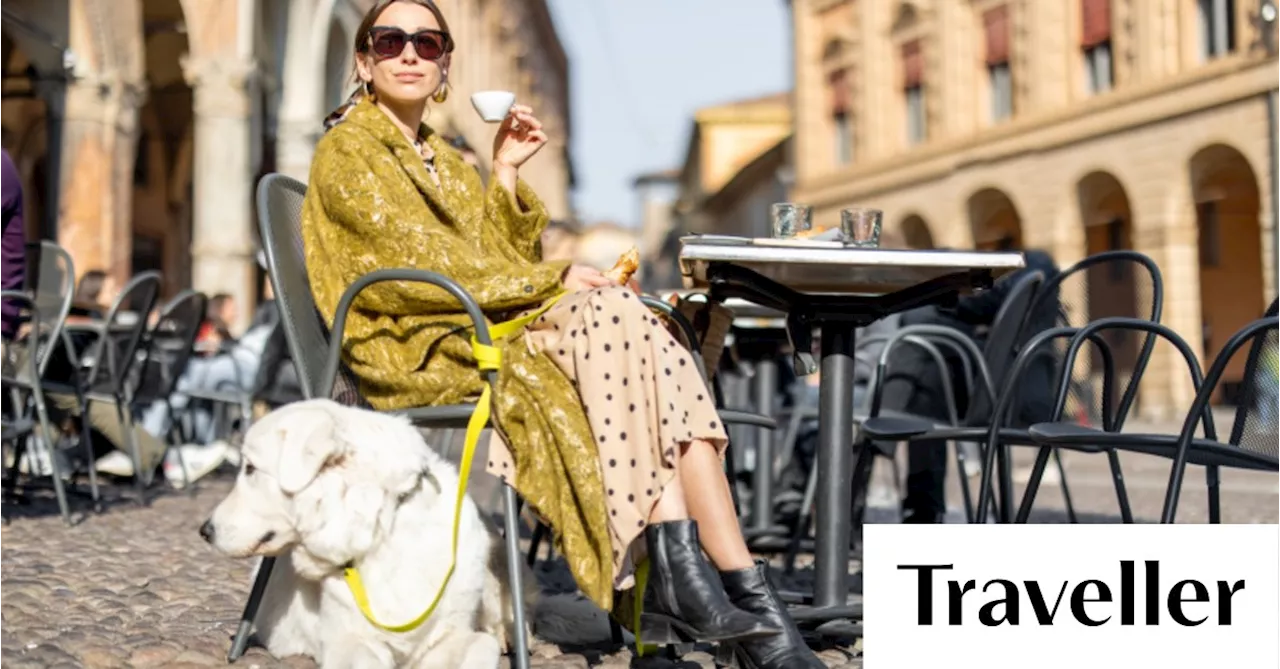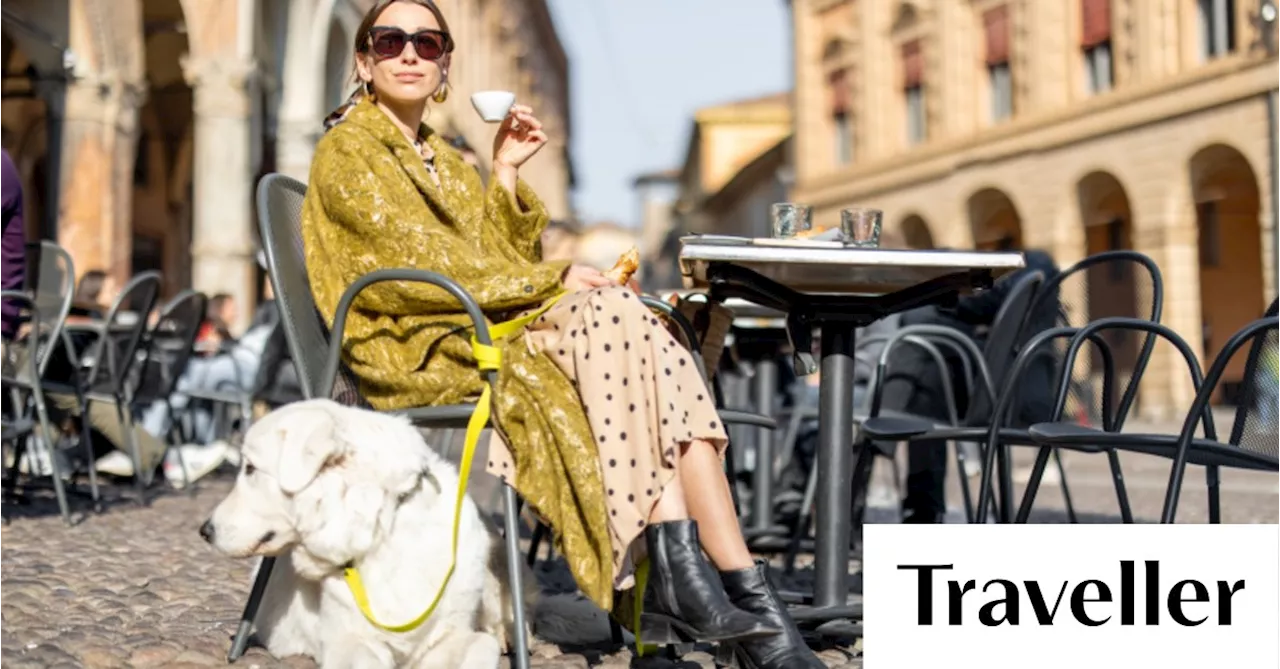This guide offers tips on how to behave like a local in Europe, covering aspects like language, dress, dining customs, and more. It emphasizes the importance of respecting local norms and customs to ensure a positive travel experience.
If you're ever wondering about the correct way to behave while traveling, the answer is simple: the same way the locals do. Though, of course, within that simple answer lies a whole world of nuance and potential misunderstanding. And that's never more true than in Europe , where accepted customs might change from village to village, let alone from country to country.
This is a continent with myriad social rules and etiquette expectations, and with more and more tourists swamping its many countries, causing friction with locals as over-tourism bites, it has never been more important to figure them out and abide by them. The following, then, is your guide to doing Europe in the same way the Europeans do. It's advice on eating, drinking, shopping, dressing, and even moving from place to place while acting in the same way locals do – which, of course, can vary wildly depending on which country you're in and even the time of year you're traveling. The “rules” are complex and often contradictory. But they are also vital for ensuring a positive experience not just for visitors, but for those being visited. It’s a form of respect. It’s a chance to lessen your impact, to heighten your enjoyment, and even to better yourself in the process. Credit: This one is simple: if you want to do as the locals do in Europe, you need to speak as the locals speak. In their language. Of course, you aren’t expected to learn an entire language for every country you visit. For most of us, that isn’t remotely feasible. What you are expected to do, however, is learn a few rudimentary phrases to get you through simple interactions without being that tourist yelling at everyone in English. This is more important in some countries than others, though it always shows respect. It will be particularly useful in France and will help a lot in Spain and rural Germany. In German cities, however, as well as the Netherlands, Belgium, much of Portugal, as well as tourist-friendly areas in Greece, Poland, Italy and many other countries, English will get you by just fine – but it’s more polite to at least have a few words of the local tongue.In large European cities, there’s a certain formality to local dress that tourists rarely adhere to. As with essentially every other facet of this story, the key to dressing appropriately in Europe is to match the style and level of formality of the locals. Which, as a tourist, isn’t always easy to do. If you want to blend in with the crowd and so lessen the impact of tourists in places who see many, many of them, you need to dress in a way that is more stylish and thoughtful than the classic boardies and thongs or even the Kathmandu-style adventure wear that gets passed off as fashion among travelers. In large cities such as Paris, Rome, Prague, Madrid and Vienna, there’s a certain formality to local dress that tourists rarely adhere to, no matter how much it would be appreciated. You might get around during the day in standard tourist attire, but at night, at restaurants, concerts and other events, it’s worthwhile carrying around at least a few more formal outfits that will make it look like you’ve gone to some effort. Dress standards tend not to fluctuate too much with the weather: locals dress quite conservatively in, say, baking-hot Seville, in the same way they do in Frankfurt, in the same way they do in Stockholm. In cities such as Barcelona, Lisbon, Berlin and Copenhagen, you can be less formal, but you still need to be stylish if you want to fit in with locals. In country areas and around beachy holiday destinations (except the likes of Nice and Cannes), visitors can be a lot more casual and relaxed with their dress.Dining customs, of course, vary greatly from country to country. They eat early in northern Europe; they eat very late in the Mediterranean. They take their time – a long time – over food in the south; they speed things up a little in the north. We will have to generalise here for the sake of brevity. To begin with, most European countries stick to a fairly rigid schedule of eating times, which you will need to be aware of and obey – otherwise, you just won’t get fed (French restaurants, in particular, will shut up shop very quickly). You should also prepare to treat each meal as an event, something to take your time over and savour, rather than as food to bolt down and get back to whatever you were doing. Most people don’t eat on the go in Europe. Lunch tends to be the most important and largest meal of the day in many European countries, which is a style you should adhere to. Go light on breakfast, settle in for a hefty feed in the middle of the day, and then keep things relatively simple for dinner. You will even discover meals that don’t exist in Australia, though you should embrace them while traveling. In Spain, merienda is a light, often sweet snack and coffee taken about 5pm
TRAVEL TIPS EUROPE LOCAL CUSTOMS ETIQUETTE LANGUAGE DRESS CODE DINING TOURISM
Australia Latest News, Australia Headlines
Similar News:You can also read news stories similar to this one that we have collected from other news sources.
 Do Europe Like a Local: A Guide to Etiquette and CustomsThis guide offers tips on how to navigate European social customs and etiquette, ensuring a respectful and enjoyable travel experience. From language to dress code, dining habits, and beyond, learn how to blend in with the locals and avoid common tourist faux pas.
Do Europe Like a Local: A Guide to Etiquette and CustomsThis guide offers tips on how to navigate European social customs and etiquette, ensuring a respectful and enjoyable travel experience. From language to dress code, dining habits, and beyond, learn how to blend in with the locals and avoid common tourist faux pas.
Read more »
 Russian cargo ship’s owner says sinking in Mediterranean was ‘act of terrorism’Three explosions caused Ursa Major to sink off Spanish coast, says company linked to Russian defence ministry
Russian cargo ship’s owner says sinking in Mediterranean was ‘act of terrorism’Three explosions caused Ursa Major to sink off Spanish coast, says company linked to Russian defence ministry
Read more »
 Russian Cargo Ship Sinks in Mediterranean, Owner Calls it 'Act of Terrorism'The Russian cargo ship Ursa Major sank off the Spanish coast on Tuesday, with its owner, a company linked to the Russian defense ministry, blaming the incident on an 'act of terrorism'. Three explosions on the starboard side of the ship caused the sinking, leaving two crew members missing. While the owner did not specify who might be responsible for the attack, the 142-meter long vessel was carrying two cranes for the port of Vladivostok. The incident comes amid ongoing tensions between Russia and Ukraine, with Ukraine having significantly weakened Moscow's naval capabilities in the Black Sea through drone and rocket strikes.
Russian Cargo Ship Sinks in Mediterranean, Owner Calls it 'Act of Terrorism'The Russian cargo ship Ursa Major sank off the Spanish coast on Tuesday, with its owner, a company linked to the Russian defense ministry, blaming the incident on an 'act of terrorism'. Three explosions on the starboard side of the ship caused the sinking, leaving two crew members missing. While the owner did not specify who might be responsible for the attack, the 142-meter long vessel was carrying two cranes for the port of Vladivostok. The incident comes amid ongoing tensions between Russia and Ukraine, with Ukraine having significantly weakened Moscow's naval capabilities in the Black Sea through drone and rocket strikes.
Read more »
 Grampians bushfire downgraded to watch and act as spread of flames slowsResidents have been told to remain vigilant and monitor conditions, despite the spread of the Grampians National Park bushfire beginning to slow.
Grampians bushfire downgraded to watch and act as spread of flames slowsResidents have been told to remain vigilant and monitor conditions, despite the spread of the Grampians National Park bushfire beginning to slow.
Read more »
 Western Australia Bushfire Downgraded to Watch and ActA bushfire south of Geraldton, Western Australia, has been downgraded from Emergency to Watch and Act level as fire behavior has reduced. Fire crews continue to battle the blaze, which has burned approximately 2000 hectares. Strong winds pose a challenge for firefighters, prompting warnings for residents and tourists.
Western Australia Bushfire Downgraded to Watch and ActA bushfire south of Geraldton, Western Australia, has been downgraded from Emergency to Watch and Act level as fire behavior has reduced. Fire crews continue to battle the blaze, which has burned approximately 2000 hectares. Strong winds pose a challenge for firefighters, prompting warnings for residents and tourists.
Read more »
 An Unexpected Act of Kindness at a Yakitori Joint in OsakaA traveler recounts an extraordinary experience at a yakitori restaurant in Osaka where a kind stranger intervened to ensure he got a table and enjoyed a memorable meal.
An Unexpected Act of Kindness at a Yakitori Joint in OsakaA traveler recounts an extraordinary experience at a yakitori restaurant in Osaka where a kind stranger intervened to ensure he got a table and enjoyed a memorable meal.
Read more »
